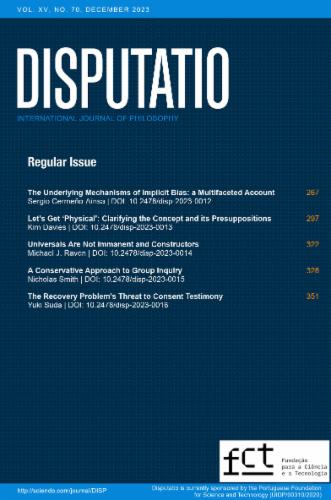Publié en ligne: 23 juil. 2025
Pages: 328 - 350
DOI: https://doi.org/10.2478/disp-2023-0015
Mots clés
© 2023 Nicholas Smith., published by Sciendo
This work is licensed under the Creative Commons Attribution-NonCommercial-NoDerivatives 3.0 License.
Recent years have seen an explosion of research on inquiry. However, there remains comparatively little work on the nature of group inquiry, which is surprising given that group inquiry is such a commonplace activity. According to this account, group inquiry cannot be explained using the standard approaches to theories of group action and belief, because these theories fail to explain the actions of large groups or the division of labor that large inquiries may require. If correct, it is a devastatingly powerful objection to many accounts of group action. It is surely a requirement of any plausible theory of group action that it be able to explain commonplace actions, and it would be bizarre and problematic if standard theories of group action could not explain group inquiry. Therefore, if the standard views cannot serve as the theoretical foundation for group inquiry, we would be right to question whether these theories should be accepted. I argue that we don’t have to accept this consequence because the objection fails, and I provide an account of group inquiry based on one of these approaches to group action, showing that we already have the tools we need to explain group inquiry. I end by arguing that using the mainstream approaches to group action as part of an explanation of group inquiry has an advantage over other approaches: it provides an explanation of what groups are.
